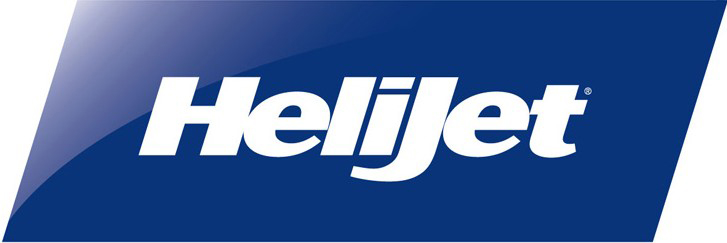
A new partnership has formed between BC Cancer, part of the Provincial Health Services Authority (PHSA), Helijet International, and TForce Logistics, a TFI International operating company, to provide patients on Vancouver Island with faster access to PET (Positron Emission Tomography) radioisotopes, a critical component of cancer care.
One radioisotope, called fluorodeoxyglucose (FDG), is currently used for clinical PET/CT scanning. A small, safe amount is injected into the patient as part of the PET/CT scanning procedure. The PET/CT scan provides precise images of abnormal or cancerous cells which can help physicians diagnose cancer at an early stage or evaluate the effectiveness of treatments by determining if a patient’s cancer tumours have shrunk, spread, or returned. Within 24 hours of having completed a PET/CT scan, there is no measurable amount of radioactivity left in the body.
“We are very excited about this partnership with Helijet and TForce Logistics,” says BC Cancer – Victoria Executive Director Kelly Nystedt. “Using the services offered by TForce Logistics and Helijet, we are able to receive FDG from where they are made at the cyclotron facility at BC Cancer – Vancouver to our functional imaging department in Victoria faster, providing more product for our PET/CT scanner; a potentially life-saving diagnostic tool.” In the first 9 months since opening in July 2019, over 1,400 PET/CT scans have been performed at BC Cancer – Victoria.
This radioisotope has a half-life of 110 minutes. Within two hours, it will decay to less than half its starting amount. The new partnership means that FDG can get to BC Cancer – Victoria faster than the current mode using ground and ferry. This results in more radioisotope being delivered which allows for increased scanning capacity, while lowering the production burden on the cyclotron facility at BC Cancer – Vancouver.
“Helijet is becoming an increasingly integral part of patient care in our province,” adds Danny Sitnam, Helijet President and CEO. “This is reflected in our ongoing, and ever-expanding, dedicated air ambulance aircraft we’ve provided for BC Emergency Health Services for the past 22 years. Adding the transport of medical radioisotopes that can help detect cancer early is all part of the same, much bigger picture. As a long-time partner of the provincial health care system, Helijet takes pride in our ability to give back to the people of this province.”
The radioisotopes emit only low levels of radiation and are shipped in a 22-kilogram (50-pound) lead-lined box designed specifically to meet transportation regulations. The package is stowed in the helicopter’s cargo hold, not in the passenger compartment. Transport Canada has approved Helijet transport of these shipments and all of Helijet’s front-line crews have received appropriate training in the handling of this special freight.
The partnership between all three organisations functions like a relay race, with TForce delivering the radioisotopes to Helijet’s Vancouver Harbour terminal from the facility at BC Cancer-Vancouver. Helijet serves as an extended provider to TForce by flying the cargo from Vancouver Harbour to the Victoria Ogden Point terminal where a waiting TForce driver picks it up and delivers it to BC Cancer – Victoria so that patients can begin receiving their scans.
“During the global response to the COVID-19 pandemic, patients with cancer still need time-sensitive care. TForce Logistics is proud to adapt and continue delivering these life-saving isotopes to cancer patients,” said TForce Logistics Vice President and General Manager Dan Leslie.
The new partnership comes following Helijet working with Transport Canada to receive the special licensing required for the transportation of dangerous goods specific to radioactive materials; work that has been expedited since the COVID-19 pandemic.
Learn more:
- For more information about BC Cancer’s PET/CT Program, including the PET Cyclotron Facility visit: bccancer.bc.ca/petct
- For more information about Helijet Air Medical Transport, visit: helijet.com/air-medical-transport
- For more information about TForce Logistics Final Mile, visit: tforcelogistics.com

